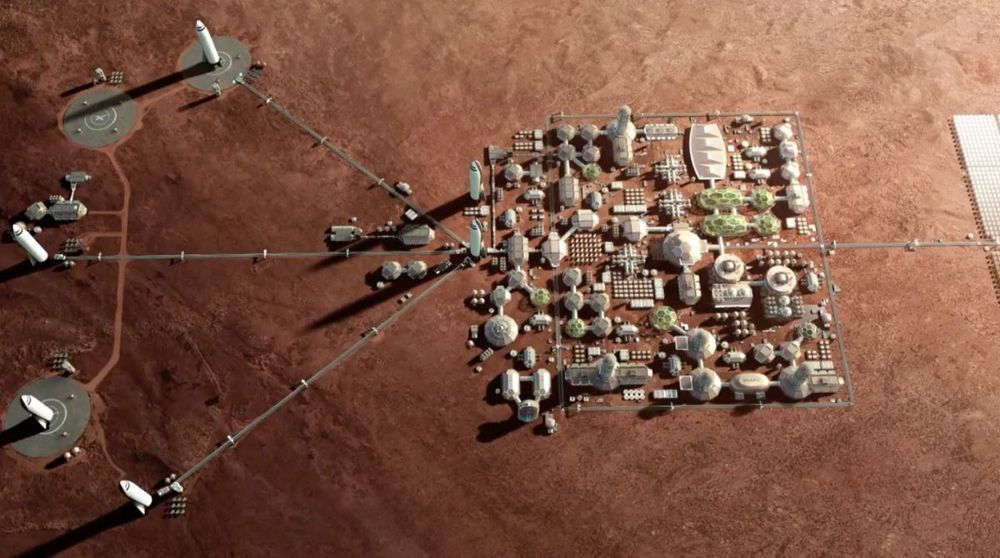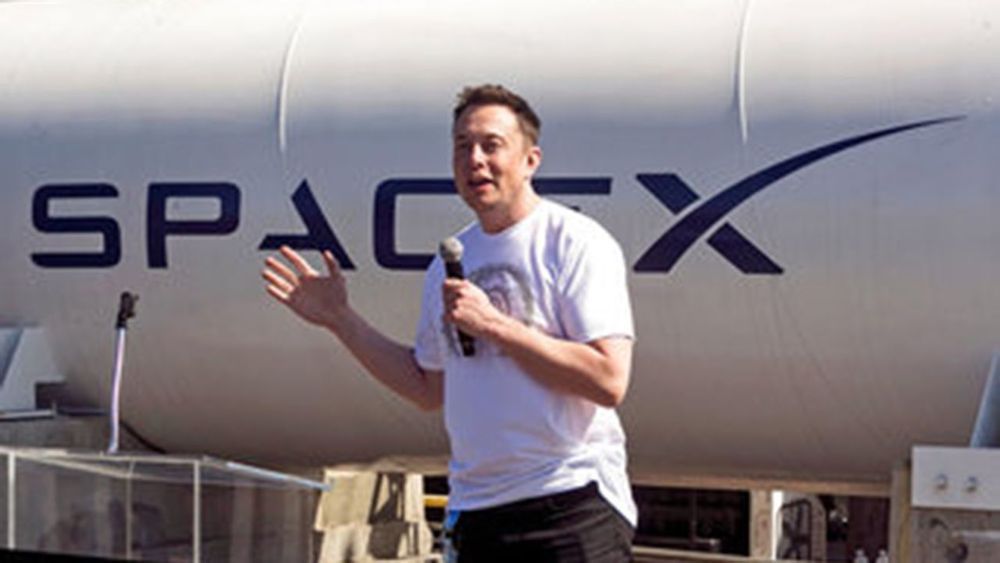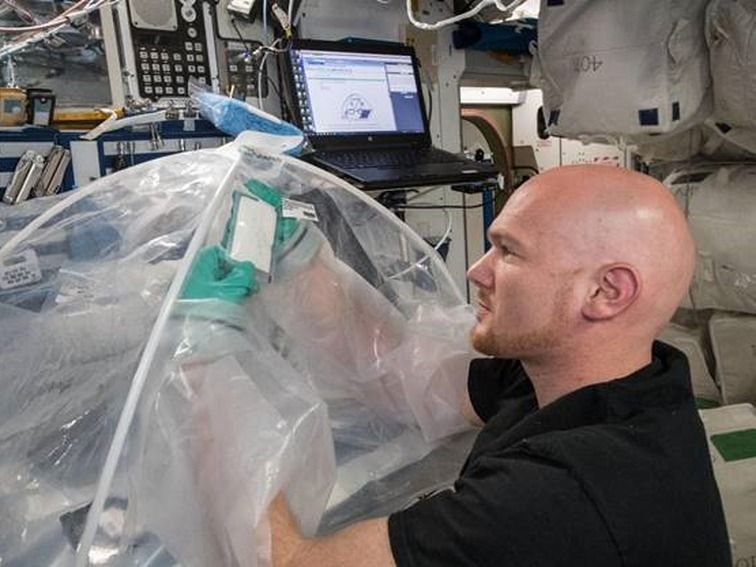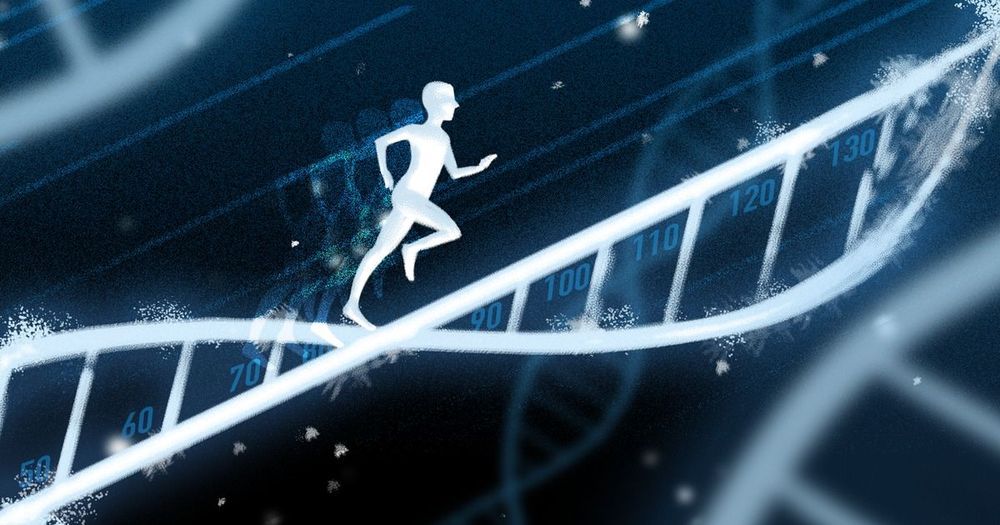Page 8366
Sep 19, 2019
How to Feed a Mars Colony of 1 Million People
Posted by Klaus Baldauf in categories: food, space travel, sustainability
What might it take to feed a million people on Mars? Lab-grown meat, tunnel-grown crops and cricket farms, a new study finds.
When it comes to plans for crewed missions to Mars, NASA typically assumes round trips with only brief stopovers on the Red Planet. However, commercial space companies have emerged with the goal of colonizing outer space, with SpaceX specifically aiming to develop a civilization on Mars.
Sep 19, 2019
A Huge Experiment Has ‘Weighed’ the Tiny Neutrino, a Particle That Passes Right Through Matter
Posted by Genevieve Klien in categories: cosmology, evolution, particle physics
An experiment nearly two decades in the making has finally unveiled its measurements of the mass of the universe’s most abundant matter particle: the neutrino.
The neutrino could be the weirdest subatomic particle; though abundant, it requires some of the most sensitive detectors to observe. Scientists have been working for decades to figure out whether neutrinos have mass and if so, what that mass is. The Karlsruhe Tritium Neutrino (KATRIN) experiment in Germany has now revealed its first result constraining the maximum limit of that mass. The work has implications for our understanding of the entire cosmos, since these particles formed shortly after the Big Bang and helped shape the way structure formed in the early universe.
“You don’t get a lot of chances to measure a cosmological parameter that shaped the evolution of the universe in the laboratory,” Diana Parno, an assistant research professor at Carnegie Mellon University who works on the experiment, told Gizmodo.
Sep 19, 2019
Elon Musk shows off Starship prototype progress
Posted by Genevieve Klien in categories: Elon Musk, robotics/AI, space travel
Billionaire company founder Elon Musk tweeted a pair of photos this week apparently showing progress on one of the Starship prototypes SpaceX is currently developing.
SpaceX has said it plans to use the rockets to shuttle passengers and cargo across the planet or beyond it.
“Droid Junkyard, Tatooine,” Musk wrote in the first tweet, making a joking “Star Wars” reference.
Sep 19, 2019
Astronomers Found Goliath Pulsar That Can Collapse Forming A Black Hole
Posted by Genevieve Klien in category: cosmology

Researcher say this massive high speed Neutron star is at the edge to become a black hole.
Sep 19, 2019
Alien life shock: Elon Musk’s unexpected warning of ‘consequences’ for chasing ET contact
Posted by Roderick Reilly in categories: alien life, Elon Musk
SPACEX boss Elon Musk joined 27 other space experts in signing a document warning against the “consequences” of attempting to contact intelligent alien civilisations.
Sep 19, 2019
Astronauts make cement in space for the first time
Posted by Roderick Reilly in categories: materials, space
Concrete could provide humans in space with better protection from radiation and extreme temperatures than many other materials.
Sep 19, 2019
China will overtake the U.S. as world’s top economy in 2020, says Standard Chartered Bank
Posted by Shane Hinshaw in category: economics
Sep 19, 2019
The end of aging: Are you ready to live to 150?
Posted by Genevieve Klien in categories: biotech/medical, genetics, life extension
Meet the Harvard genetics genius who says we can stop growing old today – even without futuristic drugs.
Sep 19, 2019
Researchers Think It’s a Good Idea to Secure Your Phone Using the One Thing You Perpetually Lose
Posted by Genevieve Klien in categories: mobile phones, privacy, security
Apple’s FaceID authentication system started moving smartphone users away from relying on fingerprints to secure their mobile devices, which are arguably less secure. But researchers think they’ve come up with an even better biometric tool for protecting a device that uses a part of the body that’s nearly impossible to spoof: a user’s ear canals.
A team of researchers led by Zhanpeng Jin, an associate professor in the Department of Computer Science and Engineering in the University of Buffalo’s School of Engineering and Applied Sciences, created a new authentication tool called EarEcho, which is somewhat self-explanatory. The team modified a set of off the shelf earbuds with a tiny microphone that points inside the wearer’s ear, not out towards the world around them. It’s not there to pick up ambient sounds to facilitate a noise-canceling or feature, or even the wearer’s voice for making calls; the tiny mic is instead tuned to listen to the echo of sounds as they’re played and then propagate through the ear canal.

















